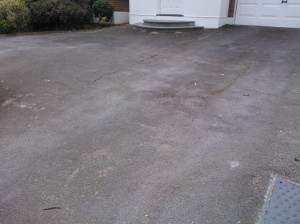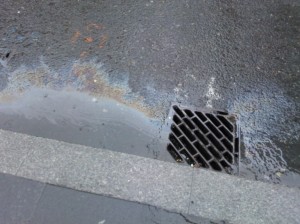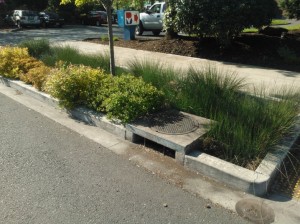The road to river destruction is paved
It is changes like this that see our rivers damaged; the gradual but ultimately large-scale loss of small green spaces like front gardens.

While urban river systems are always going to be under pressure there’s no reason why they have to be shadows of what they could be. Our city rivers could be flourishing; high-quality places for people to visit and thriving homes for fish and other creatures.
London has seen small open spaces amounting to 20 times the size of Hyde Park built and paved over in a generation. When it rains this means water rushes over the concrete surfaces, down road drains and into rivers. Or into sewers that are overwhelmed. This happens up and down the Lea Valley.
Rain is meant to replenish a river. But because many roads lead to a river the pollutants from cars are dumped in it.
With city surfaces covered in concrete, asphalt and brick the rain races into rivers. Instead of spaces like front gardens soaking up the rain it becomes a flash flood, habitat washed away with the complex populations of mini-beasts swept downstream.
In warm weather the toxic mix of from our roads has an even bigger effect on a river. Warm water holds less oxygen. Pollution uses up oxygen. So when it rains in the summer oxygen levels in smaller rivers can fall below the level that supports fish life.

In addition to damaging rivers, covering our city in non-porous surfaces also increases the risk that our homes will flood as drains are overwhelmed by rain water. We’ve all noticed the large roadside puddles that see people soaked when a bus drives by.
While the paving over and loss of green spaces may have been inevitable, what we haven’t done is acted wisely to reduce the damage.

Building natural drainage systems would have been a way to have fused the urban water cycle with our streets. These Sustainable Drainage Systems (SuDS) can be as simple as a sunken garden that takes rain from a drainpipe, slowing it down, instead of the water rushing underground. Places like Portland, Oregon did start doing this a generation ago, and as a result have seen sewer overflows into rivers cut by 35% with the rest of the reduction being achieved through conventional drainage.
The more people that detach their drainpipe and connect it to a raingarden the better http://raingardens.info/.
Theo Thomas theo.thomas@thames21.org.uk
